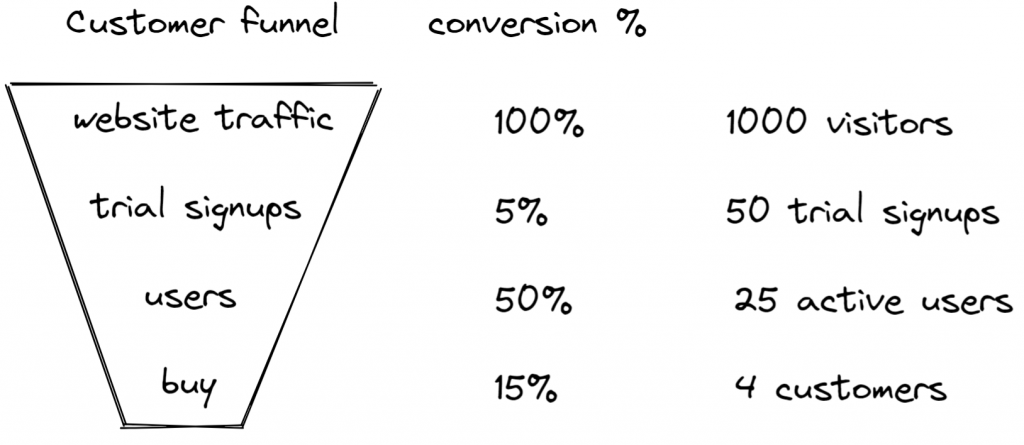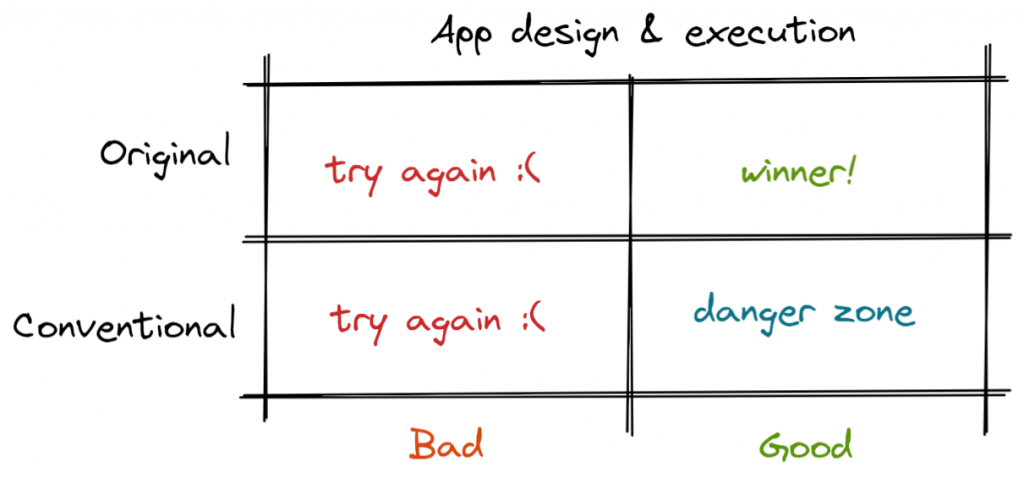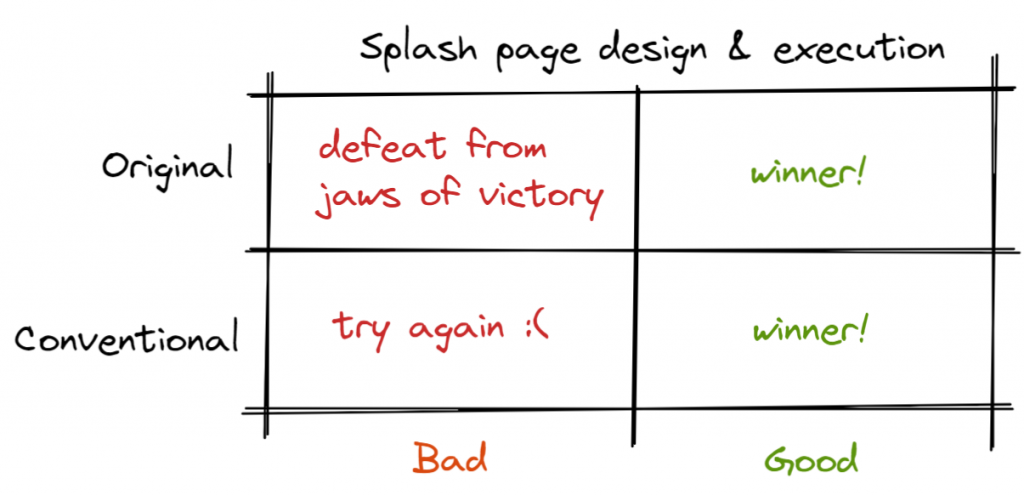Let’s say your startup website gets some traffic. Maybe through social media, ads, a podcast, or from an article you’ve written. Some of those visitors won’t understand your product or just aren’t interested. A percentage will sign up for the free trial. Of those people some mean to “look at it tomorrow” but forget, others open the trial but get confused and quit. Some will actually try your product for real, those are your users. And of those people some like the product enough that they want to buy it. Yay.

The percentages used here are pretty arbitrary. If you have an SEO article that directs people with a specific problem to your website you get high quality traffic that will flow through your funnel nicely. On the other hand, if your product is covered in some (online) magazine your traffic will consist of people who are curious but who are not actually prospective customers. Trial signups from that audience are just noise.
At some point you want to optimize your funnel and figure out where you’re losing people. When you’re just starting out your splash page[1] won’t have much traffic (not enough for A/B testing) and you won’t have the time to get everything perfect. Your funnel will leak, but that’s fine. Your initial goal is to figure out if your product is good. You can always fix the website later.
Ultimately your app will only sell well if it’s really good. Ideally, your app is also original and stands out from the rest. A great app will get you passionate users that will spread the good word to their friends, after all. This is especially true if you’re making an app for a horizontal[2] market. Originality is not without downside: different is scary and alienates people. If your app is unique in a good way it might become a big hit. If your app is unique in a bad way you won’t make it. Back to the drawing board.

If your app is too conventional it’s hard to stand out. If you have excellent marketing you can do well, but you risk becoming a zombie startup[3], where everything seems promising enough that you don’t want to give up yet, but you’re not getting the kind of traction and growth you really want.
Let’s compare this with an “innovative” splash page. Maybe you’ve done something whacky where people have to solve a puzzle in order to read what your product does. Original? For sure. But good luck getting anybody through that funnel. Look at the risk/reward here, assuming you have an app that is original and good (good idea + good execution):

A great splash page can’t save a bad app, but a bad splash page can destroy your chances of success even when your app is good. This brings us to the title of today’s post: wanton (unprovoked/unrestrained) originality.
Limited upside + unlimited downside → conventional choices are good.
This is why the websites of so many startups look the same. Your website only needs to explain what your product does and what it costs. If you do more you’ll risk punishment for wanton originality. Yes, ideally you want a high percentage of people who visit your website to try your app, but a reasonable website will do a pretty good job at that. It’s way easier to 10x your website traffic (top of the funnel) than to 10x the conversion rate of people who visit your site. Traffic matters. A good app matters. A great website is just nice to have.
Don’t get me wrong. If you can make your startup website look great by all means go for it. Just bear in mind that you can’t save a bad product with a good website[4], but you can ruin your chances with an incomprehensible website even when your product is excellent. You can have a conventional billing process. Conventional, but excellent, customer support. You don’t need to reinvent the wheel here.
Be original where it matters and don’t be different for the sake of being different.
[1] Splash page. The website for your app that shows people what your app does to encourage visitors to sign up for a free trial.
[2] Horizontal apps are for a broad group of people and businesses. Think spreadsheet software or website builders. Vertical apps are for a specific niche or industry. Think software specifically made for tennis fans or architecture firms.
[3] Zombie startup. Not quite dead but also not really thriving.
[4] Enterprise software businesses excepted. If the people who make the purchase decision won’t be the ones actually using your product (“solution”) then everything changes. Enterprise software businesses are all about the sales process. It’s a totally different world.

